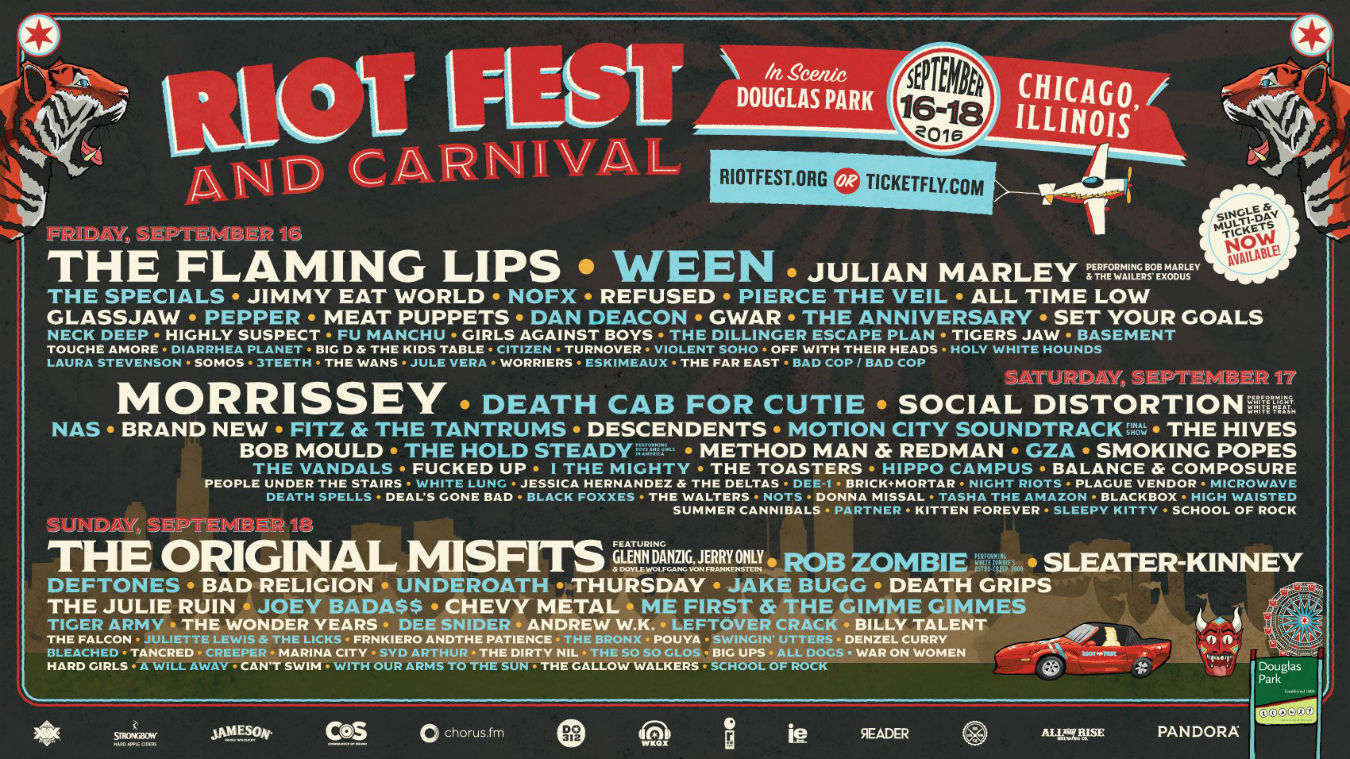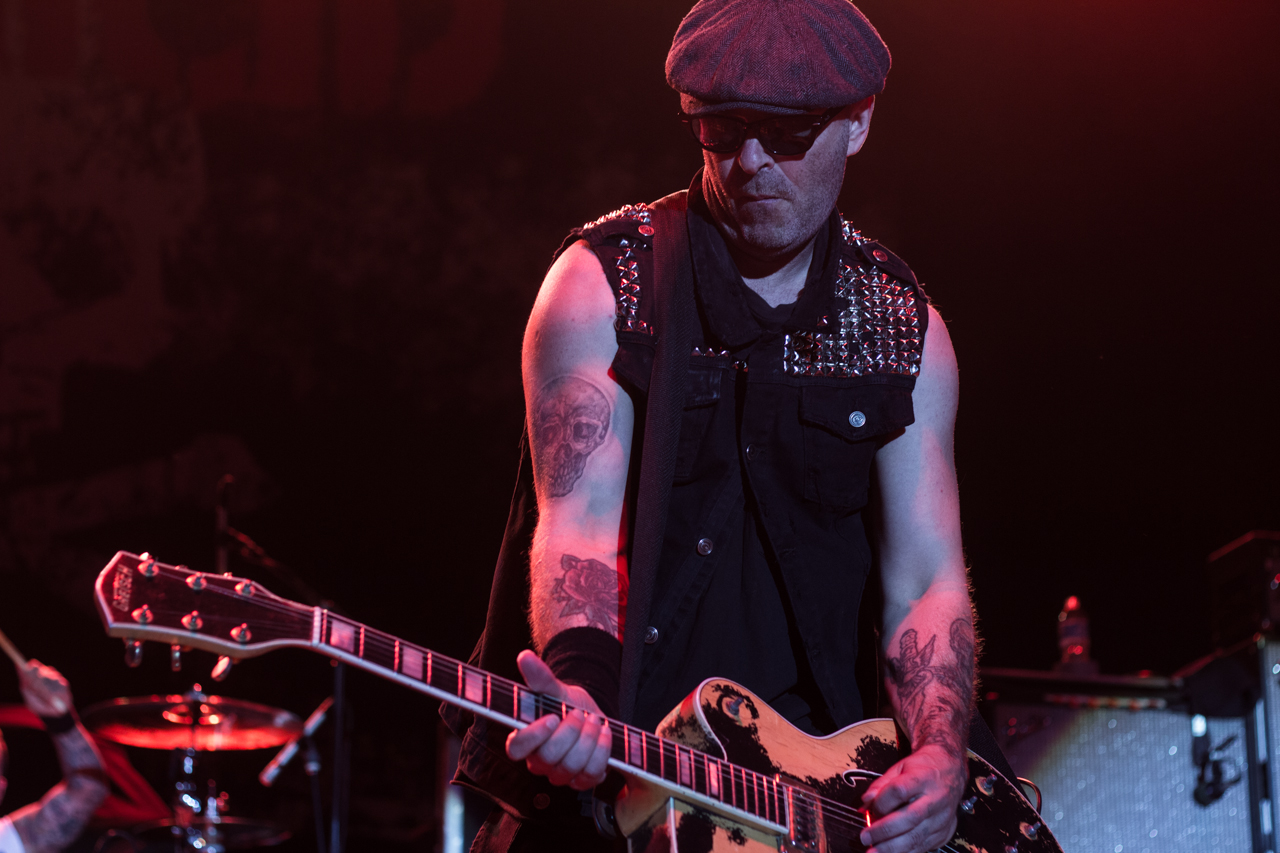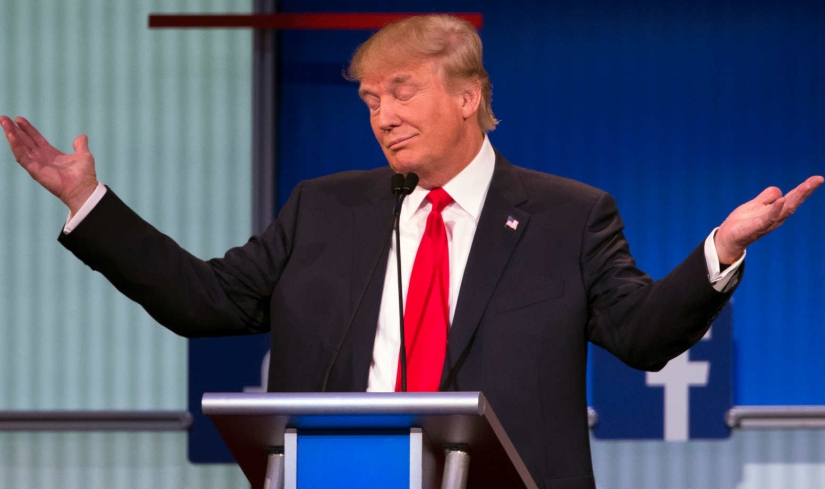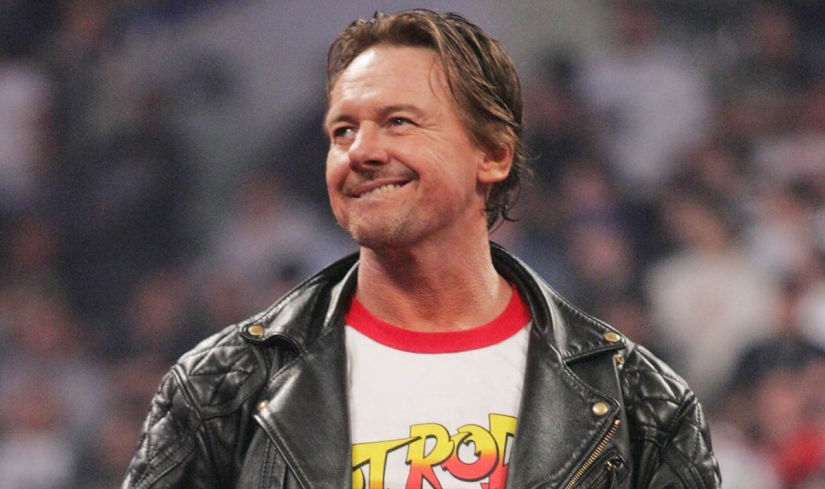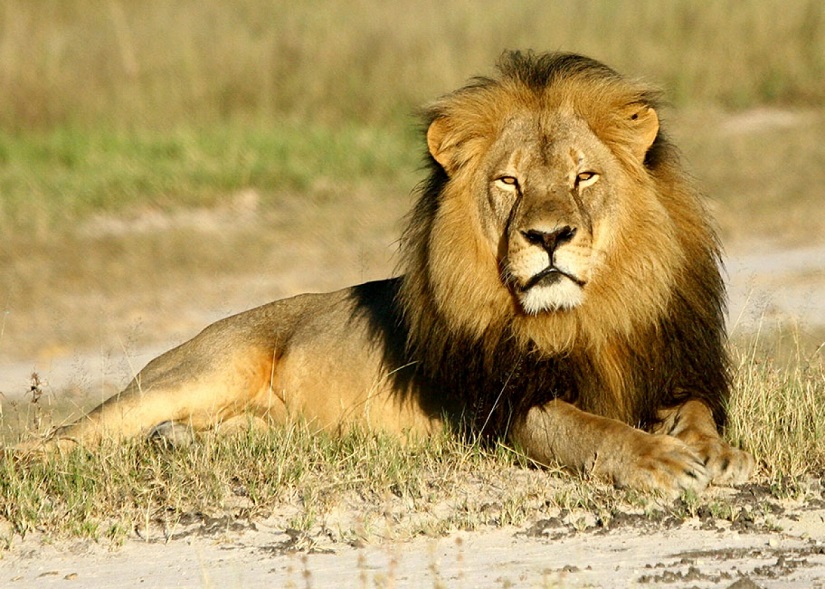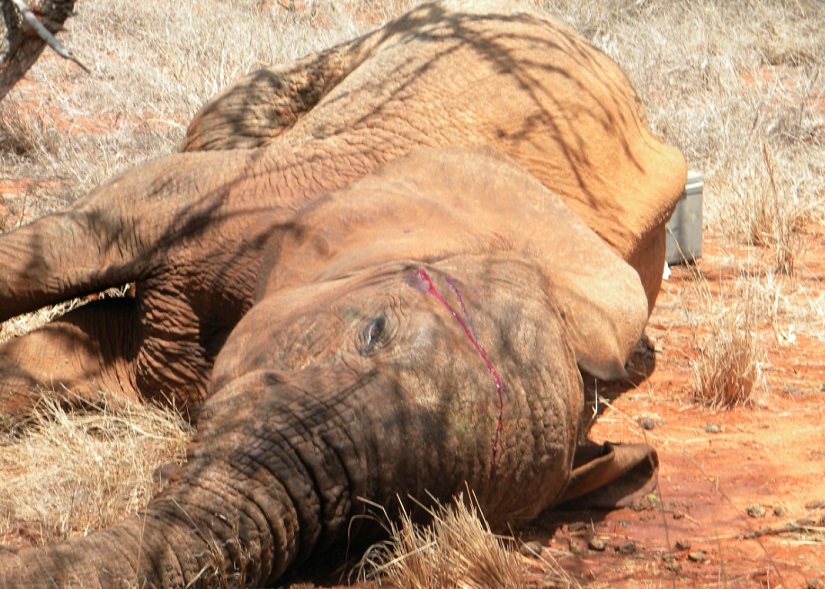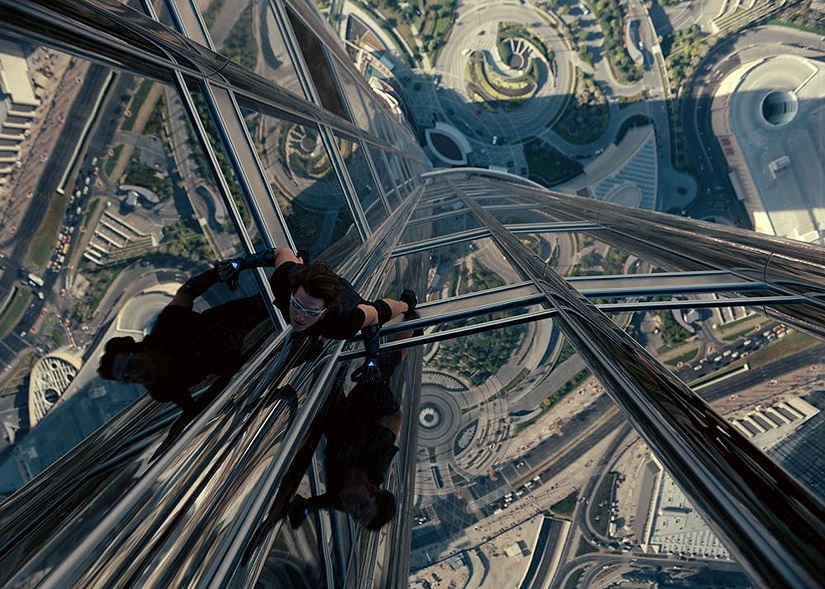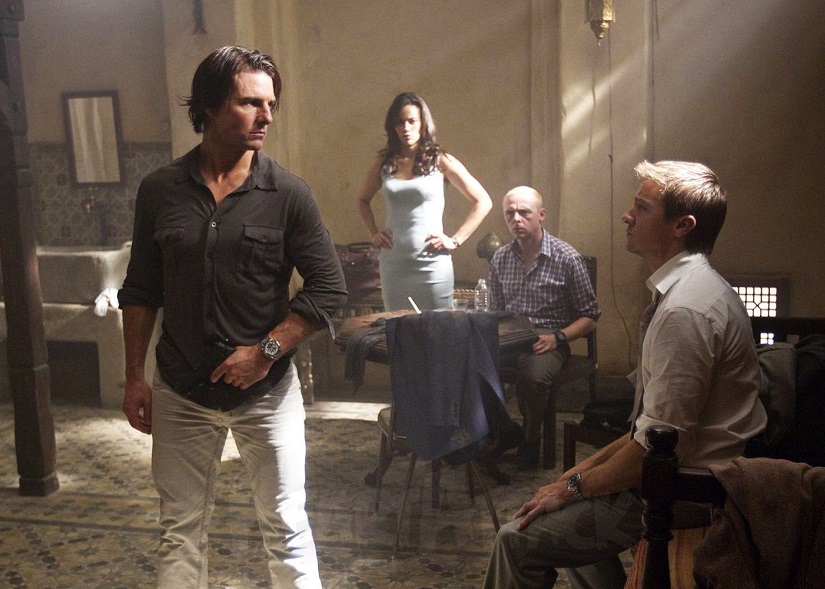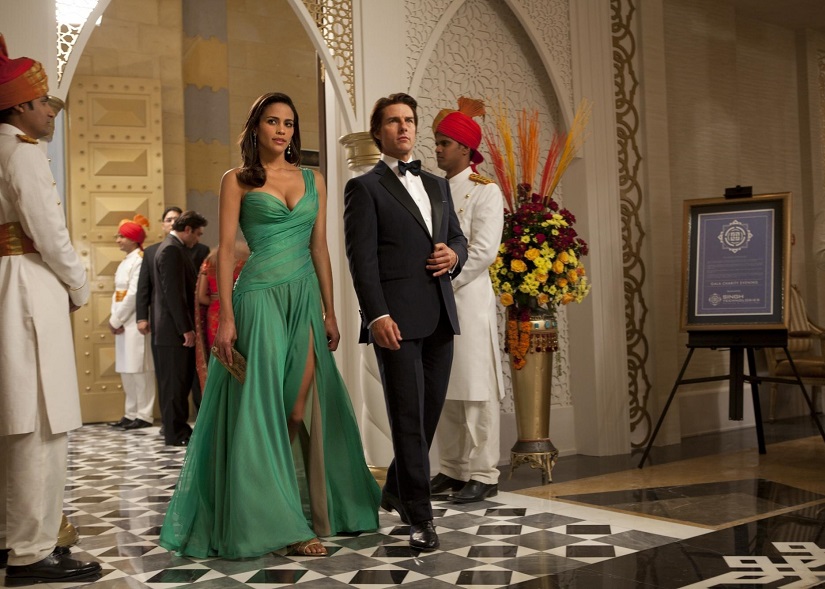15 Must-See Acts at Riot Fest 2016 Douglas Park Chicago
Riot Fest 2016 is this week! Aren't you excited? Lace up those Docs, put on your favorite NOFX shirt, and remember not throw 'bows in the pit. Are you heading out to Douglas Park but still can't figure out which acts to spend your valuable time skanking and moshing to? Ruby Hornet has you covered as we'll share the 15 must-see acts at Riot Fest this weekend!
Top 10 Bands to See at Riot Fest 2015
Header by Geoff Henao
As Riot Fest inches closer to it’s biggest and baddest debut, it’s time for you to know what to sing during this year’s fest. Changing the scenery from Humboldt Park to Douglas Park, we hope to catch you at Riot Fest this year to dance with us. Filled with old, new and reunited acts, there is a little bit of everything this year at Riot Fest. With the help of Ruby Hornet contributor, Bridjet Mendyuk, we’ve put together 10 songs that are essential to your Riot weekend. If you haven’t yet, you can still get your tickets here.
2016 Republican Presidential Debate #1 - Hello, Cleveland!
The first Republican Presidential Debate was held last night. There were two of them if you counted the "Kids' Table" debate earlier, which included presidential hopefuls polling outside of the top 10. Anyone who tuned in hoping for the Donald Trump show was not disappointed since Trump was the event's main draw. The first question out of the gate was aimed at him, essentially asking, "Can you please promise not run as a third-party candidate?" Trump, pouting and nodding, said he wouldn't promise anything, won't rule out going rogue.
Kentucky Senator Rand Paul was the first to tussle with Trump on the main stage. Former Arkansas Governor Mike Huckabee made a sly dig at Trump in his closing statement, but instead shifted his focus to presumptive Democratic nominee Hillary Clinton. Leading establishment candidates like former Florida Governor Jeb Bush and Wisconsin Governor Scott Walker instead avoided direct or indirect engagement with Trump, trying to keep their distance from the lightning rod. Everyone's scrambling around Trump in some way, and it'll continue as long as the Donald is in the running. The laughs will keep coming.
Fox News' moderators during the big debate were Chris Wallace, Megyn Kelly, and Brett Baier. Each asked some surprisingly pointed questions of several of the candidates rather than serving up underhands and softballs. It was clear that part of the point of this first debate was to cull some of the herd, and Trump complained afterwards that he didn't think his questions were particularly fair (or balanced, wakka wakka wakka). It remains to be see if any culling will occur just one debate in. The next Fox-televised debates will be in Wisconsin in November (on Fox Business) and just ahead of the Iowa caucuses in January (on Fox News). Assuming the field remains as large as it is through Iowa, culling might continue to be the name of the game.
Let's do a brief rundown of the highlights, lowlights, winners, losers, and applause lines/zingers of the first Republican Presidential Debate.
[RH Photos] Lollapalooza 2015
Photos by Bryan Allen Lamb.
Lollapalooza 2015: it came, it conquered, and it closed early. But not even Sunday's crappy, unpredictable weather could put a damper on the weekend’s festivities. Packed full of artists of every genre, Lolla brought us the latest and the legendary, once again proving that this monster of an event cannot be tamed or topped. From Friday to Sunday, Lolla-enthusiasts spent their days and nights trekking back and forth from stage to stage across the large and lovely Grant Park. Though my feet are broken and my body hates me, I wouldn’t have missed it for the world. But if you did, here’s a recap on my weekend in Lolla land.
"Rowdy" Roddy Piper (1954-2015): The All-Time Great That Wrestling Fans Loved to Hate
At UFC 190 over the weekend, Ronda Rousey dismantled Bethe Correia in just 34 seconds. (Combined length of Rousey's last three matches: 64 seconds.) Following the match, Rousey gave a shout out to "Rowdy" Roddy Piper, the wrestling legend who passed away last week at the age 61. Piper was one of Rousey's heroes and friends. She'd spoken to him just a few days before, and it's from Piper that the Women's Bantamweight Champ inherited the nickname "Rowdy." Rousey, elated by the win but showing hints of sadness, said she hoped Piper and her late father enjoyed watching the fight together.
Roddy Piper is the latest wrestling legend to die this year. While I always enjoyed Dusty Rhodes' promos (and I regret not writing about his passing a several weeks ago), I always had more of a connection to "Rowdy" Roddy Piper. He was a tough-guy madman, a prototype for heels and tweeners in the era of professional wrestling I grew up watching. Roddy Piper was the raging, motor-mouthed Daffy Duck of the squared circle, just the sort of crazed SOB that people were supposed to love-to-hate.
But really, in the end, people just wound up loving Roddy Piper.
[youtube id="yBgk7z23zfc"]
While discussing the documentary Bodyslam: Revenge of the Banana!, I mentioned that the best wrestling characters are really just extensions of a person's real personality. If that's the case, Roddy Piper was probably a certifiable loon. I think he once said he had more issues than TV Guide, and it played into his larger-than-life character. He'd blast out invective, often at high speeds, much of it crazed, and yet consistently compelling and oddly brilliant. Re-watching several of his promos over the weekend, I noticed again how his delivery had a zonked-out sing-song. He was part obnoxious schoolboy and part deranged parrot.
Listen to him again. Piper's voice is like an oscilloscope gone haywire, or perhaps the highs and lows in his voice were like a seismograph that registered every tremor of fear from those nearby. How much of this stuff had Piper written ahead of time and how much of it did Piper ad lib on the spot? The brilliance is that the audience, even contemporary smarks, aren't sure. The character's shtick is so well realized that even in the cartoony world of 80s pro-wrestling, it seems real.
Roddy Piper was born Roderick George Toombs. His childhood was a rough one, and he ran away from home around junior high or high school. The old cliché was you'd run away to join the circus. Running away to join professional wrestling doesn't seem much different, really. The circus and the squared circle are built on spectacle, performance, entertaining danger, and the workers learning how to speak a dialect of carny so the marks in the crowd don't catch on.
[youtube id="c9rrgJXfLns"]
Piper made his in-ring debut in Winnipeg at age 15 against Larry Hennig, the father of the underrated all-time great Mr. Perfect. Piper was enhancement talent during the rookie years of his career (aka a jobber, aka he made other wrestlers look good by losing) and learned the ropes of the business the old-fashioned way. Eventually Piper turned up in Los Angeles to feud with Chavo Guerrero Sr., and then Georgia to tussle with Ric Flair and Greg Valentine. When he signed with the WWF in the mid-80s, his career took off. Though Hulk Hogan was the company's primary draw, Piper was Hogan's antithesis and adversary. As much as Hogan and the other wrestlers on the roster, Piper was instrumental in making the first WrestleMania and subsequent wrestling events of that era major hits.
Piper's odd place in pop culture is mostly rooted in that Rock 'n' Wrestling phase of the 80s. He did make a few films, many of which are cult-movie also-rans, but the best of which is John Carpenter's 1988 masterpiece They Live. In it, Piper plays a tough drifter named Nada who uncovers an alien plot to turn humanity into a bunch of compliant, passive consumers. There's a high-minded critique of the 80s similar to Alex Cox's Repo Man, but there's also a schlocky B-movie quality that's perfect for the nature and execution of the conceit. How do you fight consumerism? Sunglasses and shotguns, buddy. In that weird intersection between low-brow and high-brow, They Live and professional wrestling were two primary influences on artist Shepard Fairey.
It's Piper's persona as a badass that comes through in They Live. Perhaps Kurt Russell could have played Nada, but the whole feel of the film would have been different. Without Piper's in-ring work as a wrestler, Carpenter probably wouldn't have included the kookiest street fight in cinematic history, let alone allow the scene to go on as long as it does. Piper's a great fit for the movie for much the same reason that the Roddy Piper character was an ideal wrestling gimmick. Piper is just playing himself, or at least an extension of himself. He may have been born Roderick Toombs, but Roddy Piper wound up being the genuine article.
[youtube id="uzvNPq_5P2g"]
There's one particular promo from Piper that I've always loved. In it, Piper smashes a real beer bottle on his head. Bleeding profusely from his brow and possibly only half-conscious, he then constructs a monologue that's part intimidating rant and part logical syllogism. There's determination in his voice, and some of that may just be hyper-focused concentration so he doesn't pass out. Somehow, Piper is cognizant enough to form sentences, and even, like the pro he is, turns so he's facing the correct camera when the angle is switched. Piper pauses as the cut happens, composes himself, concludes his speech, and then walks off.
Maybe he passed out when he was away from the crowd and the camera. Probably not, though. I want to believe in the character of Roddy Piper.
Just watch that promo. Seriously, don't mess with him. Remember the line he delivered in They Live?
"I have come here to chew bubblegum and kick ass... And I'm all out of bubblegum."
Truth is, Piper was always out of bubblegum.
On Cecil The Lion, Walter Palmer and the Morality of Hunting
Anyone with an internet connection can hardly have missed the outpouring of grief which accompanied Walter Palmer's murder of Cecil the lion outside Hwange wildlife sanctuary in Zimbabwe last month. The nature of Cecil's death was particularly nasty, having been lured from the sanctuary with meat, only to be severely wounded with a crossbow bolt and finished off, almost two days later, with a bullet. He was then decapitated, skinned and his corpse left to rot in the sun. That those responsible allegedly tried and failed to then destroy Cecil's tracking collar only adds to the sordid nature of the killing. Hunt guide Theo Bronkhorst and landowner Honest Ndlovu have both been charged with poaching by the Zimbabwean authorities. Walter Palmer returned to the US, but is now being sought for extradition.
The sordid business has reignited the debate surrounding the morality of trophy hunting, an industry, worth $190m in Africa, which revolves around people paying thousands of dollars to kill a wild animal under conditions guaranteed to ensure the hunter an easy, safe kill. That the hunters are almost invariably rich, white and Western adds an undercurrent of colonialist entitlement to the situation. For all the consensus on the nastiness of the act of hunting itself, reaction to Cecil's death has peripherally raised other questions about the hypocrisy of selective outrage and the wider, often ignored problems of humanity's role in selecting which species are permitted to live and which are not.
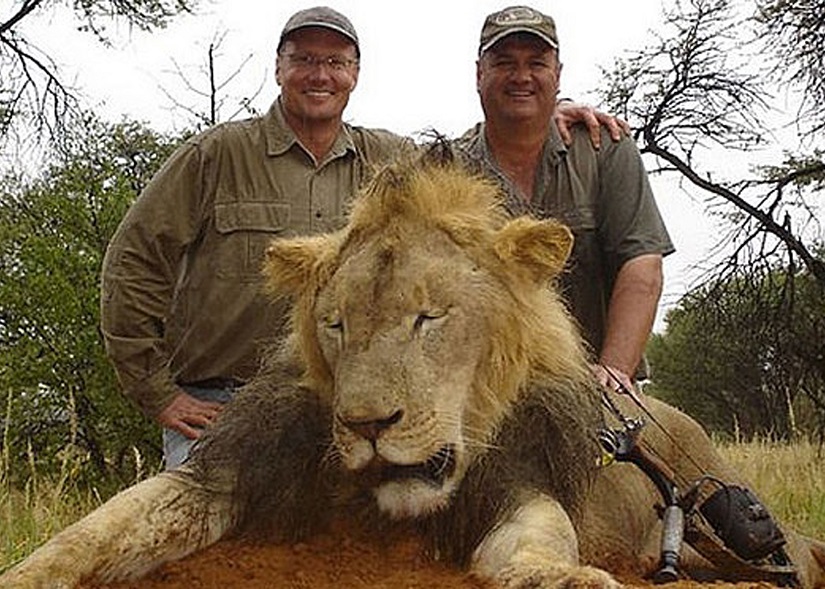
While plenty have flippantly asked why Cecil's death in particular has drawn such ire when hundreds of lions have been killed recently in Zimbabwe alone, there's nothing inherently wrong with taking one notable case as a starting point for asking questions about a wider issue. Just as we mourn family members and friends but not every single other human death on the planet, it is unrealistic to expect identical outpourings of grief towards animals of whom we have no direct understanding or knowledge, even if many share the concern over plummeting wildlife population numbers. The fact Cecil had a name and was beloved among those who knew him is indeed important, because it reminds us that if even this special lion can be so heartlessly butchered, what chance do the rest of them have?
Similarly, it is a false equivalence to ask why Cecil's death matters after he led a relatively long and free life when mistreatment of animals in the Western world is so prevalent, particularly when it comes to such practices as battery farming the animals producing the food which ends up on supermarket shelves. Animal welfare in all areas of life undeniably needs to be put under much greater scrutiny, but as shocking as Cecil's extended suffering prior to his death was, it was the exception rather than the rule for an industry which values 'clean' kills, if only for the hunter's pride and the inconvenience of having to track a wounded creature for hours and days afterwards to collect the trophy. The difference between battery farming and hunting is that, for its undeniable horrors, battery farming ultimately serves a purpose in creating food. Hunting means killing an animal for no other discernable reason than the hunter's personal pride.
The real issues arise from the resulting online outrage. Few would argue with the anger and grief which followed Cecil's death, but the form it has taken and the aims it has persued are considerably more problematic. The internet's lynch mob tendencies when it comes to online shaming has a profoundly negative track record when it comes to debating and reasoning out difficult issues. This can be attributed to the tendency for any voices dissenting from the consensus to be immediately shouted down, if not turned into a target themselves. It is morality by echo chamber, where right and wrong are absolutes and cruelty and injustice are called out not to improve the lives of others or make a fairer, more ethically sound world, but as a statement of one's virtue and for the approval of likeminded peers. It is a dangerous precedent which corrupts concepts of truth and free speech.
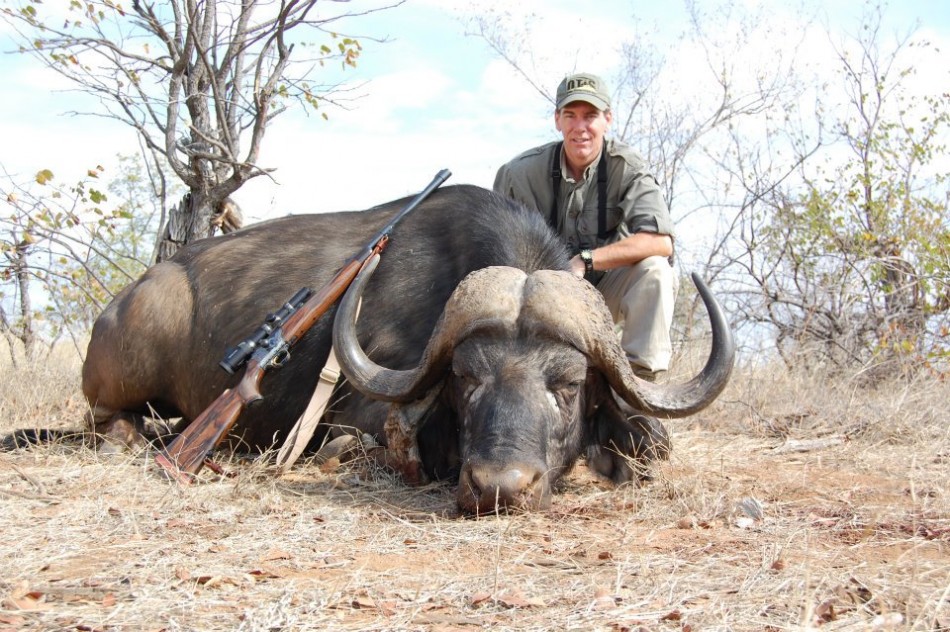
Consider the renewed calls for trophy hunting to be banned. On the face of it, this is an easy case to make: no living being should be destroyed for the sake of another's ego. The easiness of the target unfortunately means that any attempt to introduce complexity into the debate is roundly ignored, even condemned. In isolation, hunting is a deeply unpleasant practice. Paradoxically, it may also represent the best chance for many of the animals in question to be saved from extinction. There's no question that many of the benefits of hunting, as stated by its most ardent supporters, are grossly overblown. A 2013 study, for instance, revealed that little of the money generated by the industry ended up helping local communities in any meaningful way. Equally, the regulations in place to control the quotas of hunted animals is notoriously lax, while illegal hunting, as Cecil's case demonstrates, is rife. The dwindling numbers of many of the most prized trophy animals only further proves how horrendously mismanaged the whole situation continues to be.
The wrinkle is that hunting is far from being the only threat to these animals' survival. Less malicious, but arguably vastly more dangerous, is the ballooning human population growth in Africa, increasingly infringing on wildlife hunting grounds and consuming many of the resources they rely on to survive. This in turn leads to a rise in the number of animal attacks on humans, causing the animals to be hunted down either for retribution or as a guarantee of safety. An increase in population also means an increase in farming, requiring extensive grazing ground and only further eating into the territory where wildlife is able to sustainably survive. In Asia, the increased affluence of nations like China and Vietnam means demand for ivory and animal bone used in traditional medicines or as status symbols has skyrocketed, proportionately increasing their poaching value in relation to how stringently their trade is controlled or outlawed. That is to say nothing of the dangers of climate change, pollution and countless other factors: you can read more about those at the WWF website.
With corruption and mismanagement endemic in the systems supposed to protect the most vulnerable animals, it is no surprise that increasingly affluent and powerful poachers are coming up with more grotesquely innovative and technologically advanced methods of securing their prizes with every passing year. The sad truth is that humanity will inevitably kill off anything which does not have tangible value in being kept alive. For that reason, a properly regulated hunting industry may indeed play an instrumental role in one day guaranteeing the survival of certain species. If there is money to be made in breeding these animals to fund a profitable industry, even one revolving around their eventual deaths, humanity will find a way. If their survival relies on nothing more than sentiment, current and historical form suggests extinction is surely guaranteed.
Hunting is a deeply unpleasant practice, but to ban it outright may ultimately prove destructive in view of greater but less easily morally quantifiable threats to animal survival elsewhere. This is not to suggest that there may not be alternatives - this article for the New Yorker details how Rwanda has revived its gorilla population through ecotourist permits - but that relying on reactionary judgments rather than careful reasoning is not the way to find them. Hunting will almost certainly continue to exist, one way or the other. As despicable as its brutality is, it seems preferable to me that the human desire to kill animals be at least controlled and channelled in a productive and responsible way, even if we're a long way from that point right now, rather than being left solely to poachers and profiteers.
A concluding note for those who have participated in the witch hunt for Cecil's murderer, Walter Palmer. As Jimmy Fallon, of all people, very correctly pointed out, Palmer's conviction, or as some social media extremists childishly demand, death, ultimately achieves nothing. Yes, he should be held accountable for his crimes, but while focusing so much rage and attention on one man may satisfy one's personal thirst for vengeance and receive plenty of likes and retweets in the online echo chambers, it will neither bring Cecil back to life or help protect the countless other animals destined to be slaughtered as a result of illegal hunting and poaching. If anything, it merely proves that the motives of those calling for his death for their personal satisfaction are no better than those of the man himself. True justice is not taking an eye for an eye. Palmer turning Cecil into a trophy does not justify seeking to turn Palmer into one. Instead, to quote Fallon again, honour Cecil by making good from the tragedy of his death. Debate and donate. Don't blindly hate.
Top Artists to See at Lollapalooza 2015
Alright cool kids it’s that time of the year we all look forward to - when summer actually feels like summer (for two weeks) and you can drink booze outside with a couple hundred thousand of your closest friends while Millennium Park is raging with some of the most epic and fresh artists to date for Chicago’s largest annual summer music festival, Lollapalooza.
Series Recap - Mission: Impossible - Ghost Protocol (2011)
After Mission: Impossible 3's straight-faced, character-driven approach made a messy attempt at returning the series to the first movie's cereberal roots, Ghost Protocol seems a natural companion piece to Mission: Impossible II. For one thing, Ethan's hair has grown long again, while the movie adopts the same all bombast, all the time style which John Woo made so intolerable through endless empty flourishes and Robert Towne's lousy screenplay. If M:I3 was a lesser imitiation of the original, though, Ghost Protocol director Brad Bird takes the philosophy of M:I II and makes the movie that movie should have been. There's no nonsense about Scottish doppelgangers, disquisitions about heroes and villains or ridiculous showboating here. Instead, the fourth entry in the series has nothing more on its mind than delivering two hours of relentless entertainment. It succeeds admirably.
Perhaps the most telling difference between this and M:I II is that where Woo's movie came across as an extended Tom Cruise ego trip, Ghost Protocol delights in how much physical damage it can inflict on its star. Bird turns Hunt into Wile E. Coyote, a figure whose absence of personality matters not in the slightest when the real pleasure is watching him get pulverised on a semi-regular basis. This in turn makes him quite a bit more likeable than the two previous movies, if only because his sheer persistence in the face of constant physical trauma becomes amusingly, morbidly admirable. Rarely has even the boldest action movie climax been so unashamedly Looney Tunes-esque as the ridiculous showdown in a high-tech car park, culminating in Hunt driving a car down a straight drop of several floors to the concrete ground.
The plot is so thin as to barely exist. The IMF team is framed and disavowed following the destruction of the Kremlin, for which responsibility lies with Kurt Hendricks, a man determined to start a nuclear war for reasons no-one can entirely fathom. Hendricks barely appears at all, to the extent I'd mostly forgotten there even was a main villain for most of the movie's running time. Bird uses plot as little more than a loose framework around which to build a set-piece delivery machine, churning out one action sequence after another with little interest in developing the narrative in any meaningful way. Where that might be problematic in lesser hands, Bird shoots each sequence with such freewheeling energy that it's a joy just to be taken along for the ride. Making his live action directorial debut off the back of Pixar's The Incredibles and Ratatouille, there's a clear cartoonish influence on the way he gleefully abandons reality in search of squeezing every drop of entertainment and comedy value out of each frame.
The Burj Khalifa sequence, the apex of the series' love of vertical action, is the most thrilling of the lot and among the most astounding movie set-pieces of the decade so far. Benefiting enormously from Cruise's devotion to performing every stunt himself, Bird delights in evoking the vertiginous heights Hunt is manoeuvering above. Having Hunt climb the side of the world's tallest building isn't enough, of course, so the movie throws in a number of terrific visual gags surrounding his malfunctioning adhesive gloves and a variant on the fulcrum technique used for a skyscraper break-in in the last movie, here employed in an insane attempt at returning to the hotel room from whence he came and naturally faceplanting a window on the way. Anyone who missed seeing it in IMAX should be kicking themselves, but it is shot so well as to work almost as effectively on the small screen. After the overblown blue-and-oranges of M:I3, Robert Elswit's cinematography puts a strong emphasis on bringing out the colour and vibrancy of each location. Ghost Protocol is frequently gorgeous to look at and captures the distinctive identity of each destination in a way Woo and Abrams so comprehensively failed at.
What anchors the movie is the strongest team dynamic of the series to date. Simon Pegg returns from M:I3 and is given far greater prominence as the movie's comic relief gadget maestro. With Ving Rhames' stalwart Luther held back until a cameo at the end, Jeremy Renner and Paula Patton are the newcomers making up the rest of the team. Renner is wonderful as Brandt, a grumpier, more reluctant version of the Ethan Hunt from the first movie and something approaching a voice of sanity in a world gone utterly bananas. His chemistry with Pegg and Cruise is immediately endearing, even if his links to Hunt's past feel a little shoehorned in. Paula Patton's Jane Carter gets a slither of backstory, immediately making her the series' best developed female character. While Patton isn't an especially strong actress, she looks believeable tough - her kicking off her heels before going into battle is a small, badass wonder - and rocks a cocktail dress to brain-melting levels of hotness.
The movie's approach to continuity is interesting, although not altogether successful. The reveal that Brandt was on the security detail assigned to protect Hunt's wife, Julie, when she was ostensibly killed just sort of sits there, serving little purpose until a faintly sweet coda in the final scene. The question of what actually happened to her is brought up a number of times and drags the pace down each time. I appreciate the movie not simply ignoring its predecessor's potentially difficult resolution, but a shorter, sharper explanation would have been more than sufficient. A callback to the manner in which Hunt is taken to see Max in the first movie is a fun if nonsensical nod, but can't help but feel disappointing when the imperious Vanessa Redgrave fails to turn up. That Hunt instead turns out to be making a call to the man he freed from a Russian prison (to the tune of 'Ain't That A Kick In The Head', no less) in the first act pays off that foreshadowing reasonably well, but if you're going to tease one of the series' most vivid characters, you'd damn well better deliver. Much better is how the movie's final line is used to slyly set up the events of Rogue Nation, which will have a hell of a job on its hands if it's to raise the bar on Ghost Protocol's stupendous action extravaganza.

